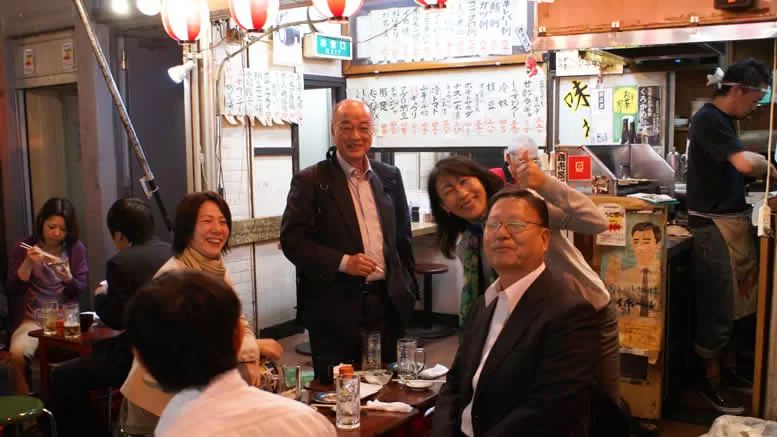Japan is a highly formal society where politeness is deeply ingrained in everyday interactions. Greeting someone for the first time, especially in a business setting, can feel like a ritual with a strict protocol to follow.

If you are visiting Japan on holiday, you may not notice many of these customs, as casual encounters in bars or social settings tend to be relaxed and friendly. However, in a business environment, greetings are taken very seriously—almost as structured as a tea ceremony.
Names:
Most Japanese people are addressed by their surname, followed by the honorific -san, which is used for both men and women. For example, Mr. Jones would be Jones-san, and Mrs. Smith would be Smith-san. This suffix can even be used for objects and animals in certain contexts.
For younger males, the suffix -kun may be used instead of -san, particularly by teachers or senior colleagues. Those with respected status, such as the elderly, politicians, or teachers, are often addressed with -sensei. For instance, Mr. Brown, if he were a teacher, would be referred to as Brown-sensei.
Many famous Japanese figures adopt the Western name order when working internationally, such as Yoko Ono (whose original name order would be Ono Yoko in Japan).
Bowing – See our bowing page
Business Cards
Business cards, known as meishi, are an essential part of Japanese business culture and must be handled with great respect. When receiving a card, accept it with both hands and take a few moments to examine it before placing it in front of you during the meeting.
Do not immediately put it in your pocket or wallet, as this is considered rude. Additionally, never write on a business card—doing so is seen as highly disrespectful. It is also customary to bow while exchanging business cards as a sign of courtesy.
Seating Order
When attending a meeting or dinner, seating arrangements follow a strict hierarchy. The most honored guest sits in the kamiza, the most prestigious seat, which is usually the furthest from the entrance. The host or the least senior person will sit closest to the entrance.
If you are unsure where to sit, the best approach is to wait until the host directs you to your seat.
Gift Giving
When visiting someone’s home, it is customary to bring a gift, known as temiyage, as a token of appreciation. Popular gifts include sweets, sake, or a bottle of wine, but a souvenir from your home country is especially well-received.
Japanese people love stuffed toys, so a plush native animal from your homeland can be a thoughtful and unique gift. Presentation is just as important as the gift itself—beautiful wrapping and decorative ribbons add significant value and demonstrate respect for the recipient.




